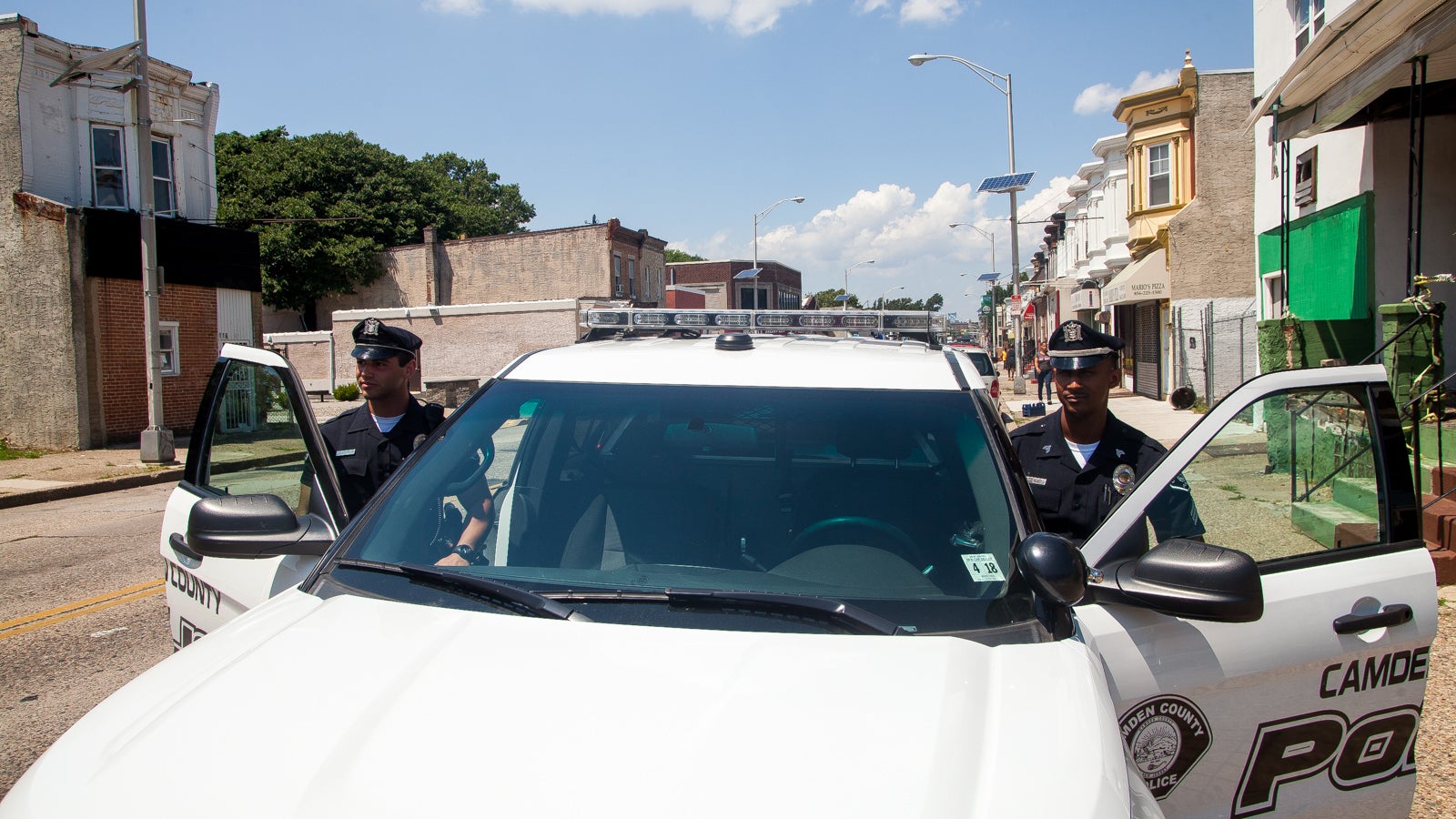NJ Supreme Court rules in favor of Camden police petitioners
Listen
The Supreme Court decision hinged on a petition drafted by residents to block the city's transition to a countywide police force in 2012. (Brad Larrison/for NewsWorks)
The New Jersey Supreme Court has ruled in favor of a group of Camden residents who proposed an ordinance to stop the city’s dissolution of its police force three years ago.
The ordinance was blocked from the 2012 general election ballot after a lower court sided with Camden Mayor Dana Redd and City Council President Francisco Moran, who sued the petitioners and argued that the ordinance curtailed the city government’s legislative power.
“[T]he [residents’] Faulkner Act initiative petition does not constitute an unlawful restraint on the Council’s future exercise of its legislative power,” wrote Justice Anne M. Patterson in a unanimous 6-0 decision. (Justice Faustino J. Fernandez-Vina did not participate in the case.)
The decision turns on whether a provision in the Faulkner Act — a 1950 law that laid the foundation for many New Jersey municipal governments — allowing residents to pass “initiatives” supersedes the authority of other laws that grant powers to local governments.
In other words, can residents propose a law that would affect a law already passed by the city’s political leaders?
The state’s highest court said yes … up to a point.
“This is a very unique circumstance because of Camden’s regionalization of the police force and other statutes that pertain only to the city of Camden and not to other municipalities,” said Michael Cerra, assistance executive director of the New Jersey State League of Municipalities, a member organization for local government officials.
The state Supreme Court ruled that the rights of Camden citizens according to the Faulkner Act eclipsed the powers of the local government laid out in several laws designed to help the distressed city, including the Municipal Rehabilitation and Economic Recovery Act.
“It’s really hard to take this case and apply it to anywhere else,” said Cerra.
The Justices further ruled that the ordinance could not proceed now since it would be out of date given the city’s full transition to a countywide force, but said the petitioners could start the process over.
According to attorney John Eastlack, who represented Mayor Redd in the case, the ruling will not curtail the city government’s legislative power.
“The mayor and council have the full powers that they have under the Faulkner Act to propose legislation [and] to enact legislation. And this ruling doesn’t do anything that would in any way diminish that,” he said.
“But it also reaffirms the power that the citizenry has to propose legislation.”
That point was echoed by the petitioners’ attorney, Anthony Valenti, who said the ruling was a win for all New Jersey residents.
“It solidifies their rights in Faulkner Act municipalities … or for that matter any form of government that has initiatives and referendum rights,” he said.
New Jersey has about 130 municipalities that operate under the forms of government laid out in the Faulkner Act, also known as the Optional Municipal Charter Law.
Although that’s only 20 percent of the New Jersey’s 565 municipalities, it includes more than 40 percent of the state’s population, according to an estimate by Cerra at the League of Municipalities.
Faulkner Act cities other than Camden include some of the state’s largest cities such as Newark, Paterson, and Jersey City, as well as many municipalities in South Jersey including Cherry Hill, Atlantic City, and Vineland.
WHYY is your source for fact-based, in-depth journalism and information. As a nonprofit organization, we rely on financial support from readers like you. Please give today.




